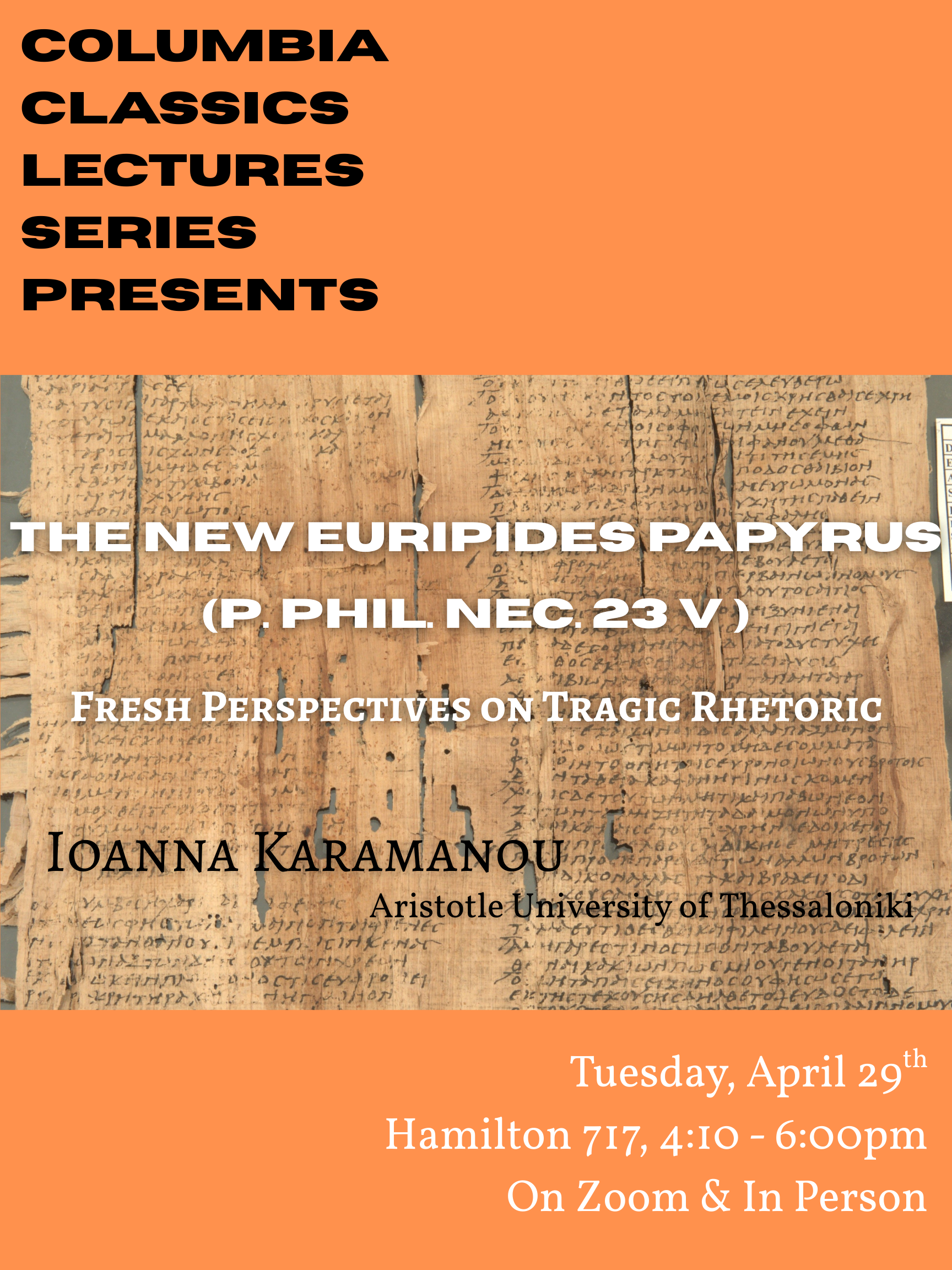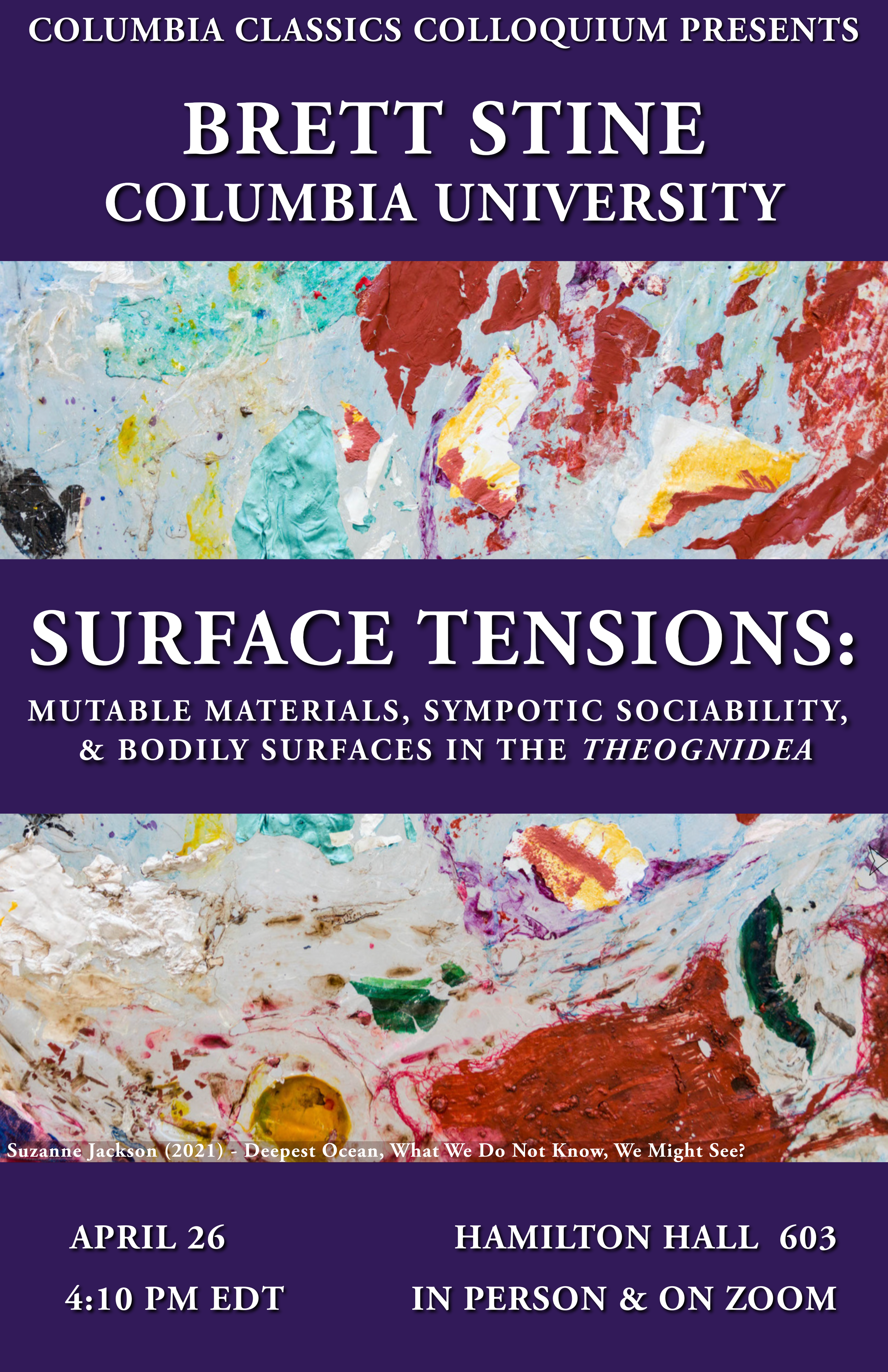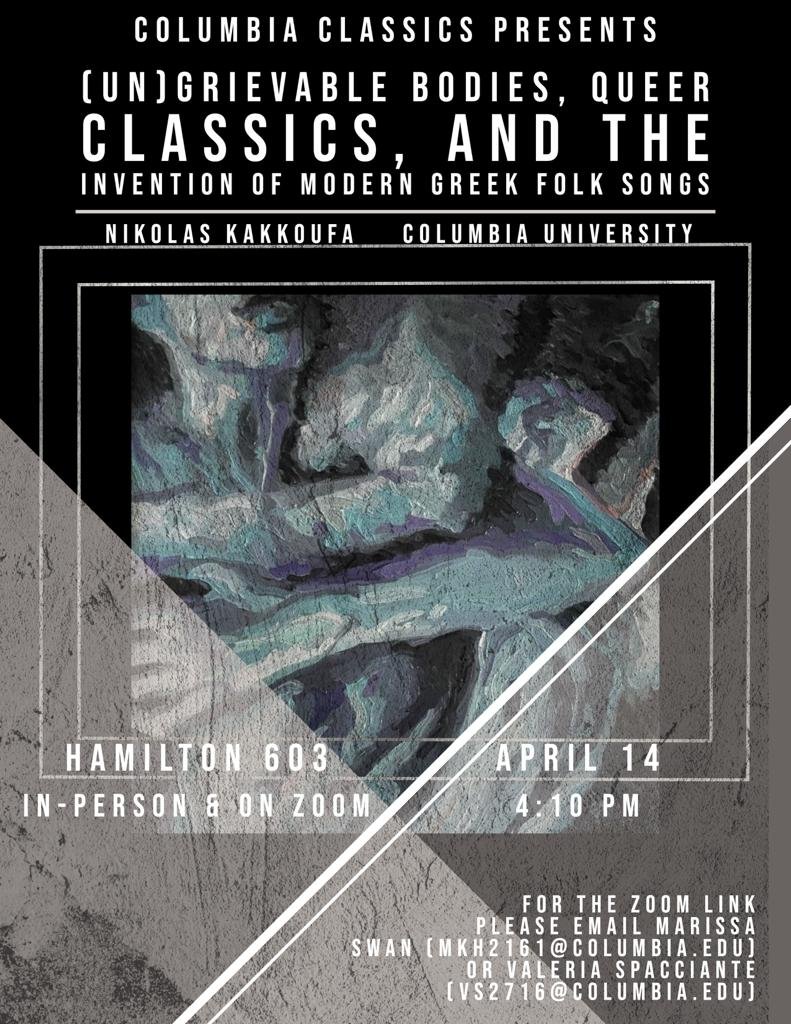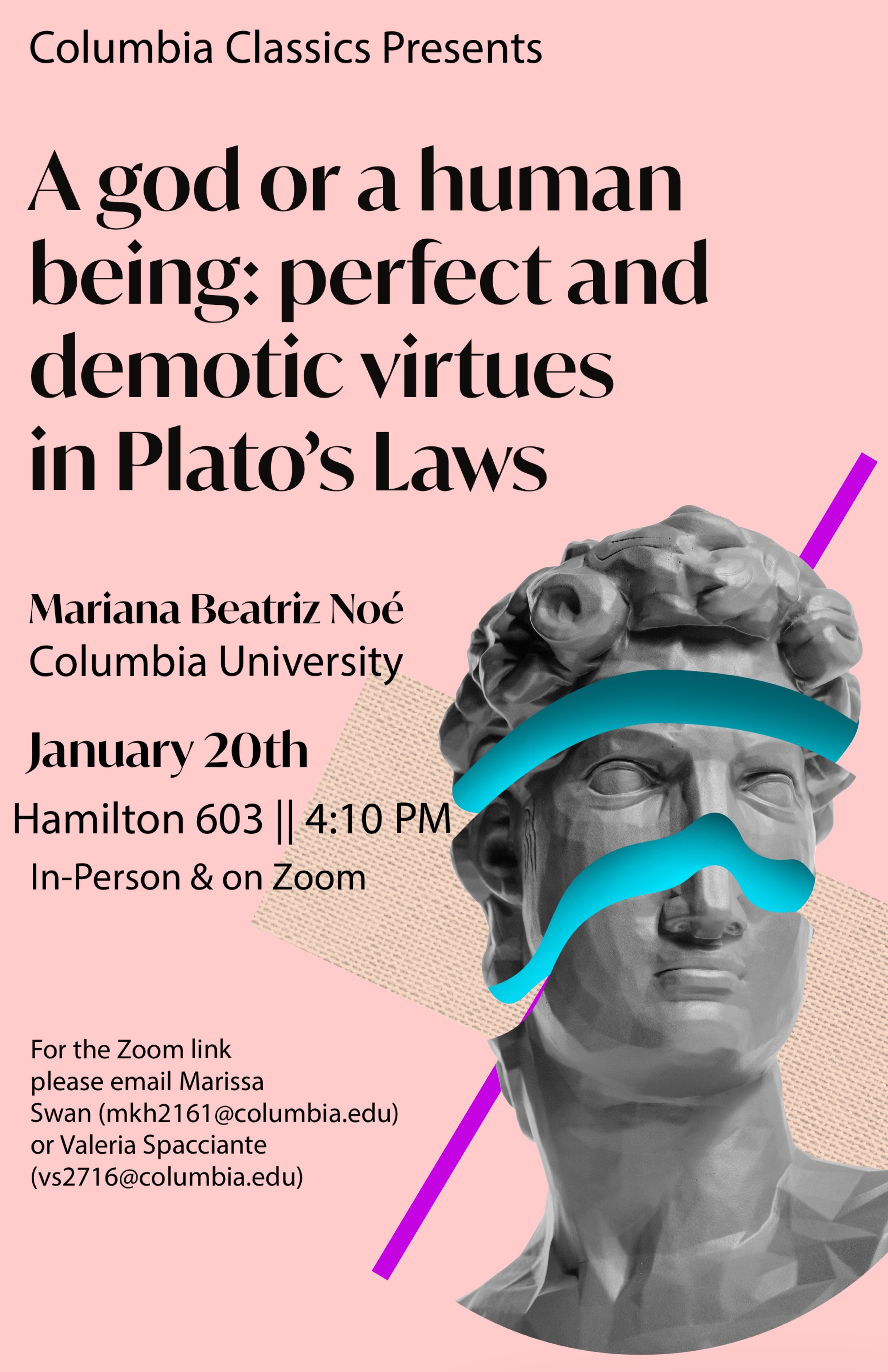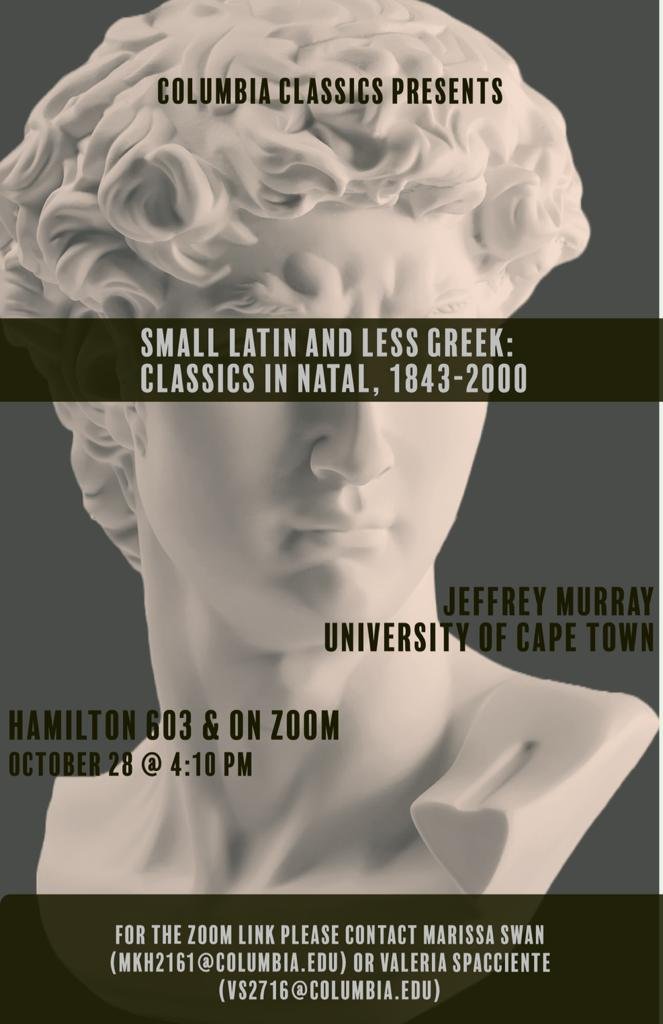Hello everyone,
We are excited to invite you to the fourth and last talk of the Fall 2024 Semester!
Luke Lea (Columbia University) will give his talk entitled Good “Because of Itself” in Republic II. The talk will occur on Friday, December 6th, at 4:10 p.m. EDT in Hamilton 603 and on Zoom. A reception will follow.
If you would like to receive a Zoom link, please email Holly Axford (ha2694@columbia.edu). The Zoom link will be circulated the day before the talk.
Our speaker has kindly agreed to precirculate an abstract, pasted below. A poster for the event is also attached to the bottom of this email.
We hope to see you all there!
All the best,
Holly Axford, Gia Chen, Paraskevi Martzavou, Umberto Verdura, and Gareth Williams
Columbia Classics Lectures Series Co-Organizers
******************************************
******************************************
Title: Good “Because of Itself” in Republic II.
Abstract: Early in Republic II, Socrates accepts a challenge from Glaucon. The Challenge is to show that the just life is better than the unjust life, but Glaucon will not accept any old argument that this is so. Socrates must praise justice as something valuable “because of itself” and without any reference to the value it has “because of what comes to be from it”. In agreeing to praise justice in this way, Socrates may seem to pledge that his defense of the just life will bracket any valuable consequences being just may bring the just person. Yet later formulations of what appears to be the same Challenge expect that Socrates will rest his case for the value of justice on some things that most modern readers would consider among its consequences. And indeed the argument he develops in Books II-IX relies on things that should seem to count for modern readers among justice’s consequences: the happiness and pleasure justice brings about for its possessor, the work justice does in the just person’s soul, the outcome resulting from this work, etc. In resting his defense of the value of the just life on these consequences of justice, does Socrates violate the terms of The Challenge? I argue that he does not. The Challenge, rightly understood, tasks Socrates not with praising justice as intrinsically good (which would require bracketing all its consequences) but as good by nature. Something can be good by nature in virtue of certain consequences it produces.

